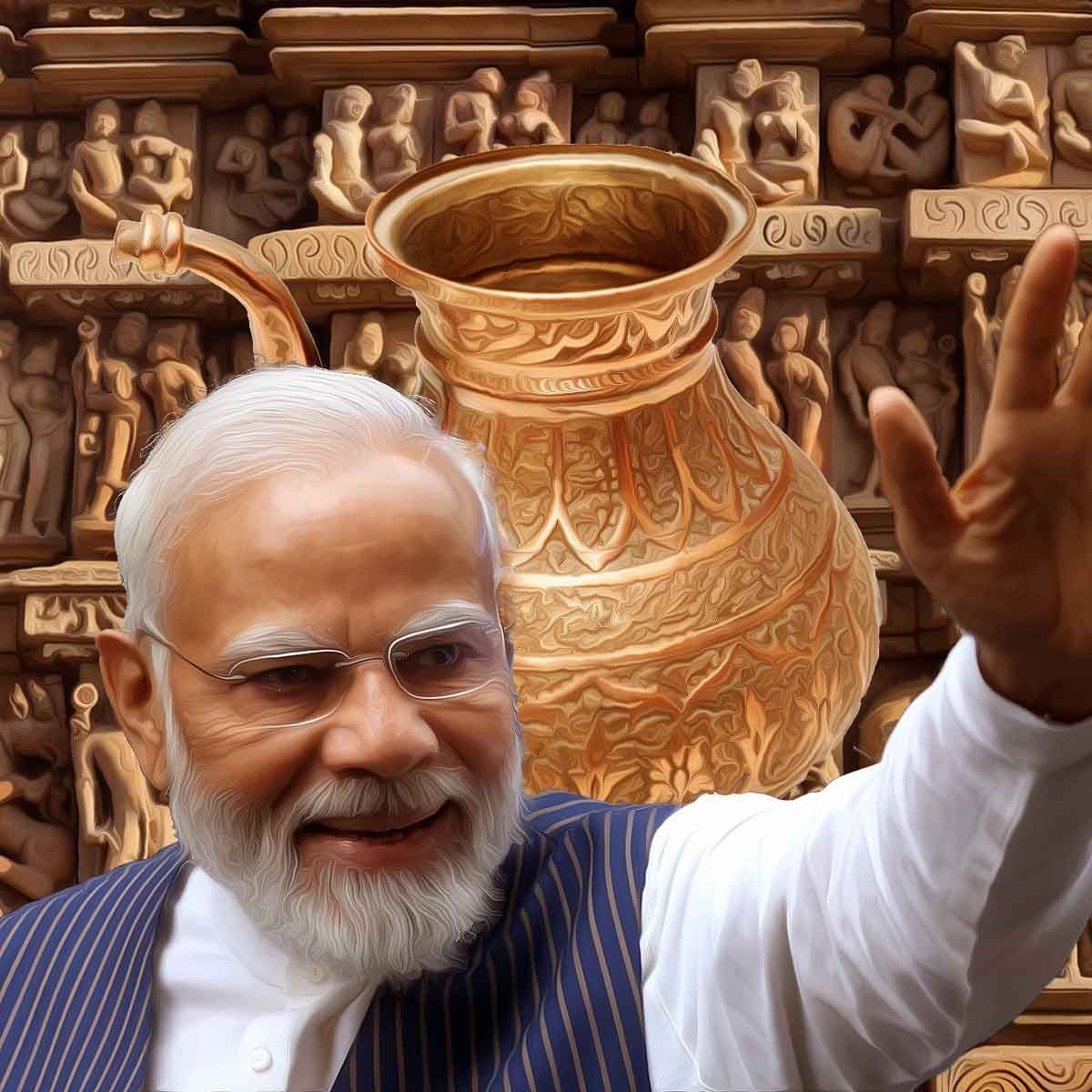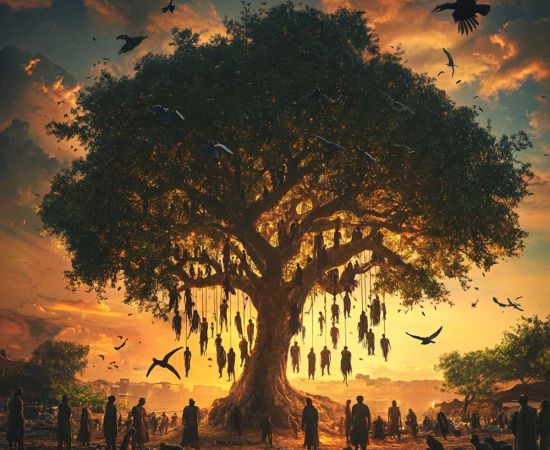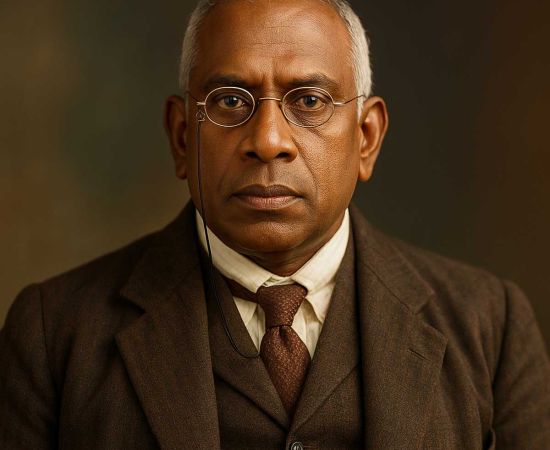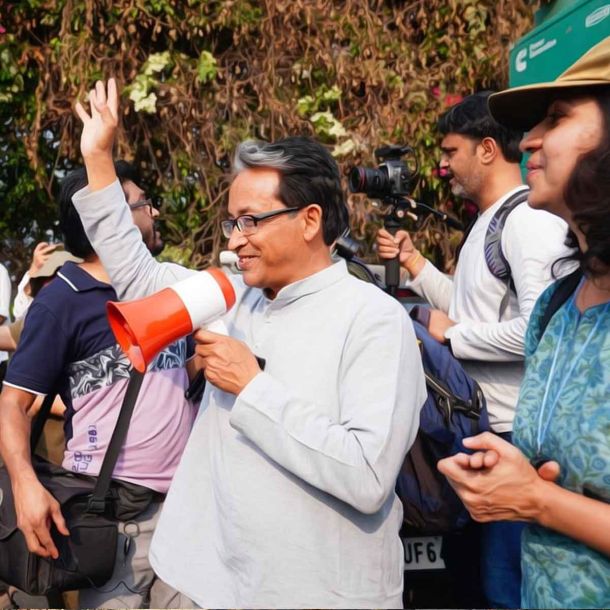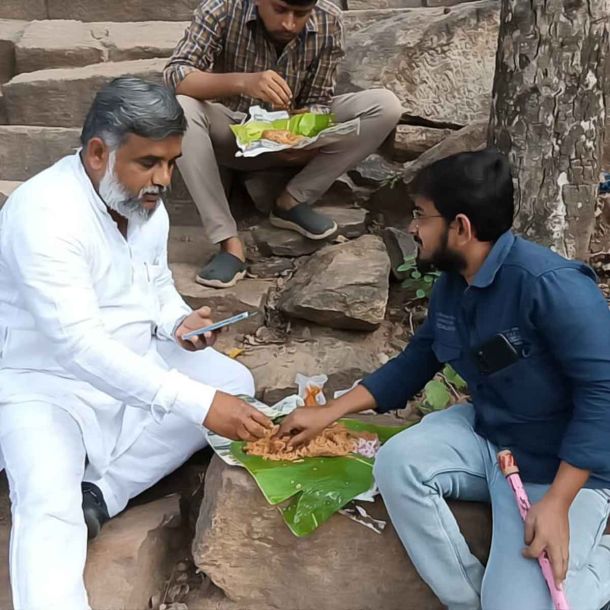MORE COVERAGE
Twitter Coverage
Satyaagrah
Written on
Satyaagrah
Written on
Satyaagrah
Written on
Satyaagrah
Written on
Satyaagrah
Written on
JOIN SATYAAGRAH SOCIAL MEDIA
"गुनाह है - Committed grievous sin to marry a Hindu’: Sultana's mama Suleman killed Hindu Ghanashyam Das by spiking his drinks with poison, while the family of the woman had no problem with her marriage to a Hindu, her maternal uncle had warned her

In a shocking incident that has stirred the Kodarma region of Jharkhand, the local police have initiated legal proceedings against an individual named Suleman, accused of the heinous murder of a Hindu man, Ghanashyam Das. This case, unfolding amid the complex interplay of personal relationships and religious beliefs, raises questions about societal norms and individual choices.
The roots of this tragic event lie in the union of two individuals from different religious backgrounds. Ghanashyam Das, a Hindu, and Sultana, a Muslim woman, found love beyond the barriers of their religious identities. Sultana, a widow grappling with the uncertainties of life and the future of her two children, chose to marry Das three years after the death of her first husband. It was a decision driven by love and a desire for a stable family life for her children.
However, this marriage, which should have been a private affair, took a dark turn. Suleman, the accused, is reported to have brutally ended Das's life. Suleman, related to Sultana as her uncle, allegedly perceived Das's marriage to his niece as a 'grievous sin' due to the inter-religious nature of their union. This alleged perception led to a catastrophic outcome.
The details of the case, as reported by Aaj Tak, indicate a tragic intertwining of love, faith, and familial bonds. The FIR, filed on December 14th, highlights a disturbing delay in the police action, raising concerns about the effectiveness of law enforcement in dealing with such sensitive cases.
The second marriage of Sultana, a Muslim woman, to Ghanashyam Das, a Hindu man, initially appeared to be accepted by her family. However, Sultana's maternal uncle, Suleman, harbored deep-seated objections.
Despite the broader family's acceptance, Suleman's disapproval of the marriage was stark. He explicitly warned Sultana about her decision to marry Das, threatening to take drastic steps to prevent it. His opposition stemmed from a belief system that saw the union as a transgression of religious boundaries. Despite his threats, Sultana and Das proceeded with their marriage, seemingly undeterred.
Tragically, ten months into their marriage, the situation took a fatal turn. The accused, Suleman, allegedly executed a sinister plan to end Das's life. It is reported that he poisoned drinks that were subsequently consumed by Das, leading to his immediate demise. This act, if proven true, reflects a chilling resolve to enforce personal beliefs through extreme measures.
Sultana, now faced with the loss of her second husband, is seeking justice. Her appeal to the police for stringent action against Suleman underscores her anguish and the gravity of the crime. Her expectations for justice not only represent a personal quest but also a call for societal reflection on the consequences of intolerance.
The timeline of these events is as critical as they are tragic. The murder allegedly occurred on the 13th of December, with the police swiftly registering an FIR the following day. However, questions linger about the actions taken since the FIR was filed, and the effectiveness of the law enforcement response.
In the harrowing aftermath of the murder on December 13, Sultan, the Muslim woman married to the Hindu man Ghanashyam Das, finds herself entrenched in a relentless pursuit of justice. Her journey, marked by frequent visits to the local police station and the Assistant Superintendent of Police (ASP) office, reflects her determination in the face of overwhelming grief and societal challenges.
Sultan's story is a poignant testament to the complexities of interfaith marriage in a society where such unions can still stir controversy. Despite being a Muslim, her decision to marry a Hindu man, Ghanashyam Das, was initially met with no familial opposition. She had even secured her mother's consent for this court marriage. However, the persistent disapproval from her uncle, Suleman, took a darker turn as it evolved from mere disapproval to actual, menacing threats, especially after her second marriage.
The tragic event on December 13, when Suleman allegedly poisoned Ghanashyam Das, leading to his death, marked a heartbreaking climax to this tale of forbidden love and familial conflict. Sultan's story, which once began as a narrative of love transcending religious boundaries, has now been overshadowed by grief and a quest for justice.
 |
Following the tragic death of her husband, Sultan took immediate action, resulting in an FIR being filed at the Domchanch police station. The police have since initiated an investigation, with an inquiry led by the Sub-Divisional Police Officer (SDPO) underway. Despite these developments, Sultan continues to seek justice, her pleas echoing amidst assurances of thorough investigation and decisive action.
The case, still in its investigative stages, saw a crucial development with the filing of an FIR for murder on December 14, the day after the incident. However, Sultan and the wider community await tangible progress in the police action. This delay raises concerns about the efficiency and responsiveness of the legal system in handling such sensitive and urgent matters.
Sultan's unwavering demand for justice in the face of her husband's murder underlines the ongoing struggle for recognition and acceptance of interfaith marriages. It also brings into focus the need for societal progress towards tolerance and the urgent requirement for effective law enforcement in ensuring justice and upholding the rule of law. As further investigations into the case continue, all eyes are on the outcome, hoping for a resolution that not only brings justice to Sultan and her late husband but also signals a step forward in societal understanding and acceptance.
 |
 Support Us
Support Us
Satyagraha was born from the heart of our land, with an undying aim to unveil the true essence of Bharat. It seeks to illuminate the hidden tales of our valiant freedom fighters and the rich chronicles that haven't yet sung their complete melody in the mainstream.
While platforms like NDTV and 'The Wire' effortlessly garner funds under the banner of safeguarding democracy, we at Satyagraha walk a different path. Our strength and resonance come from you. In this journey to weave a stronger Bharat, every little contribution amplifies our voice. Let's come together, contribute as you can, and champion the true spirit of our nation.
 |  |  |
| ICICI Bank of Satyaagrah | Razorpay Bank of Satyaagrah | PayPal Bank of Satyaagrah - For International Payments |
If all above doesn't work, then try the LINK below:
Please share the article on other platforms
DISCLAIMER: The author is solely responsible for the views expressed in this article. The author carries the responsibility for citing and/or licensing of images utilized within the text. The website also frequently uses non-commercial images for representational purposes only in line with the article. We are not responsible for the authenticity of such images. If some images have a copyright issue, we request the person/entity to contact us at satyaagrahindia@gmail.com and we will take the necessary actions to resolve the issue.
Related Articles
- "आज जेल होई, काल बेल होई। आज जलालपुर में खेल होई": 15-year-old school student Aditya Tiwari brutally murdered by Taif, Sahil and Arshad with sharp weapons at school allegedly after Aditya opposed them for molesting school girls, every sinner has a future?
- In a major breakthrough, NIA has revealed that the murder of Bajrang Dal activist Harsha was perpetrated to orchestrate communal unrest against the backdrop of the hijab issue: Karnataka
- ‘La ilaha illallah muhammadur rasulullah”: Muslim BTech student, Lareb Hashmi, attacks a Hindu bus conductor with cleaver over ‘blasphemy’, shouts "We are ready to die for Prophet", inciting public uproar and leading to a dramatic police encounter, arrest
- Murdered Hindu youth named Kishan Bharvad was shot by Bikers which shook Ahmedabad: He was targeted earlier for sharing one pic that Mohammedans found offensive
- As Hindus across the world celebrate Ram Navami, in India Islamists unleash mayhem in 5 Indian states to stop Hindu processions, engaged in stone-pelting, targeted attacks, arson, violence, and vandalism: Not a new phenomenon in India
- "The people who abandon Jihad fall a victim to humility and degradation, Jihad is obligatory for the Muslims": While nation was still mourning over Ankita brutal killing by Shahrukh Hossain, in other #LoveJihad case Yameen Ahmed sl!t throat of Anjali Arya
- ‘Sarkar ko Jhukana and, Hindu-musalman karwana hai… Need to finish Hindus, make a separate nation for Muslims’: Govt counsel continues to present scathing evidence to oppose bail to Umar Khalid
- "या अल्लाह": Sara Sharif, a 10-year-old from Woking, found dead with severe injuries; her father, Urfan Sharif, confessed to beating her but blamed stepmother Beinash Batool, as forensic evidence and messages revealed abuse, triggering trial at Old Bailey
- Islamist gunmen stormed riding motorcycles attacked predominantly Christian villages, 80 killed, more than 60 abducted and over 115 homes were razed
- "To sin by silence, when we should protest, Makes cowards out of men": Rathore Saheb, bahut bahdur tha aapka beta, par Gustakh -E- Nabi Ki Aik hi Saza Sar Tan Se Juda. Tell this to all Hindu cowards, Nabi se gustakhi nahi
- 23 Jan to 29 Jan - 2022 - Hindus under attack: Bulletin roundup of persecution, discrimination, and hate crimes against Hindus
- "And in my last breath, I saw him dancing": A 16-year-old boy's merciless stabbing of another in Delhi, captured on CCTV, with 60 blows in a deranged frenzy, this tragic tale of youth violence unfolds, DCPCR intervenes, hinting at deeper societal failures
- Tension gripped Baghpat after a Hindu boy Sandeep Dudhiya was brutally attacked by his Muslim friend Muhammad Feroze, who slit his throat with a sharp knife: The boy is battling for his life
- Neeraj Prajapati, part of the pro-CAA tricolour march in Jharkhand was killed by a frenzied Muslim mob with an iron rod: Two years later his family still awaits justice
- "Jab nash manuj par chhata hai, Pehle vivek mar jata hai": Bahu Kavita with her lover Irshad, and friends Naushad, Sajid and Parvez, gets her Sasur Jaswant Sharma killed after making own son held at gunpoint, Irshad needed money to celebrate Eid















